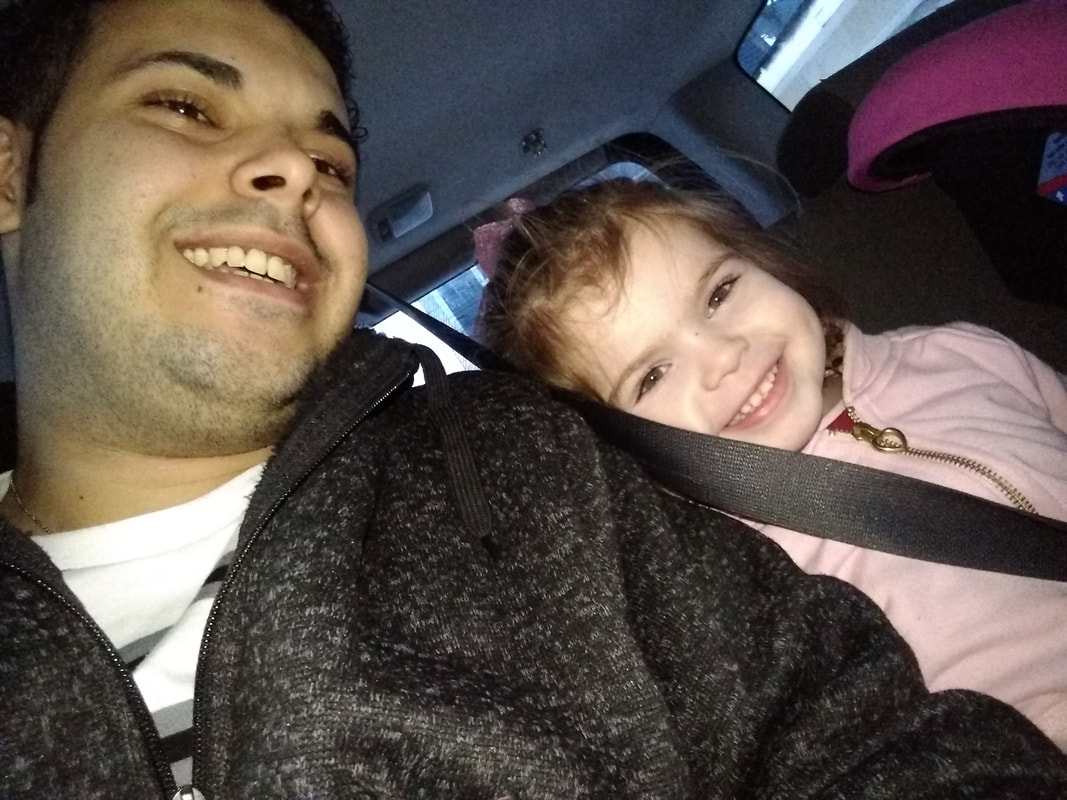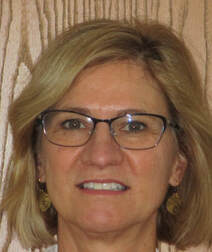Iowans Thrive Blog
Featuring stories, research, and news on Iowa's movement to respond to ACEs
|
|
 Jonat Gonzalez, age 26, has big goals for himself and his daughter. He wants to earn his high school equivalency diploma, secure a good paying job, and provide the best life he can for Adelyn, age 3. He wants his daughter to grow up healthy and do well in school. These are goals Jonat has set over the past year, since he received a package in the mail that told him he was a father and that his daughter was going into foster care. While working to gain full custody of Adelyn and establish his life with her, he’s found support from friends and Mid-Iowa Community Action (MICA) based in Marshalltown. “It wasn’t hard to step into this role,” Jonat says. “The hardest part was finding the support to do it.”  Sheila Paul Sheila Paul Sheila Paul with MICA’s 2-Gen program, aimed at supporting parents and children at the same time on their path to financial stability, meets weekly with Jonat at his Montezuma rental home to talk about steps he can take to achieve his goals. Family Connections also visits every other week to work with Adelyn on developmental activities and with Jonat for how he can help his daughter with challenging behaviors, including occasional outburst at others and clinginess to him. “Jonat is very open to us coming into his home and asking about resources and what areas he would like to continue to be supported in and he’s very goal oriented,” says Nikki Harter, who supervises the 2-Gen program at MICA and who initially worked with Jonat. "We talk together about how he is going to reach his goals and breaking that down step-by-step. He’s focused on what he wants for him and his daughter.” The 2-Gen ApproachMICA is one of four organizations piloting the 2-Gen approach in Iowa. The new model led by the Family Development and Self Sufficiency (FaDSS) program in the Dept. of Human Rights works with families who have barriers to achieving self-sufficiency. Families can sign up for home visiting support before they receive Temporary Assistance for Needy Families (TANF) benefits and are in FaDSS to have help navigating those systems. The pilot program also allows flexibility to work with families more intensely for a longer period of time. “The ability to reach families in deep poverty and then work with them up to much higher income levels means we can provide a level of support for achieving and maintaining economic well-being we weren’t able to before,” says Kelly Davydov, who has helped develop this pilot as a FaDSS program manager. Kelly is among a group of government partners representing FaDSS, Promise Jobs in Iowa Workforce Development, and TANF in the Dept. of Human Services. Since 2016, this group has spent time listening to families who experience poverty, learning about two-generation approaches with a cohort of 10 states receiving federal assistance, and developing new strategies within these systems.
The Stress of Poverty Living in poverty especially can create significant stress that can weigh on a family. Kelly says, “it compounds everything else a family might experience.” According to Harvard University’s Center on the Developing Child, as stress builds, parents can have a fight, flight or freeze response that makes planning or staying calm difficult. This can increase challenges within the home as parents and children struggle to weather many kinds of adversity. Just as houses cannot build themselves, families need a team working with them to build their well-being with the right materials, including access to health and mental health care, a nurturing home, a good-paying job, quality education, and opportunities and connections within the community. The 2-Gen model helps families weathering significant challenges identify these materials within their community and shore up their foundations. “You can’t just provide education to kids and hope they grow up to achieve higher income as adults,” says Kelly. “You have to work within the entire system that impacts that child. Same with adults. If you go in and try to address adult trauma and whatever stressors might be in the adult’s life, you have to think about what is going on with their kids. The parent-child relationship needs to be a focus.” The Two-Gen program has enrolled 52 families in its first year. FaDSS home visitors work with the families in 14 areas, including intimate partner relationships, mental health, parenting skills, transportation, housing, and substance abuse. Nikki says many parents need support with skills like budgeting and building credit, as well as accessing transportation, mental health services, and safe, affordable housing. Home visitors also spend time helping families celebrate their accomplishments toward their goals. For Jonat, a big success has been getting his SafeCare certification, which gives him full custody of his daughter. Listening to What Families Need The Two-Gen program often works with parents who have experienced trauma in the past and are experiencing difficult situations today. But the focus is less on the trauma—though that can be addressed if brought up—and more on the strengths the family has within to work toward big goals. This opportunity to focus on the future, especially what parents want for their children, can be overwhelming but provides hope.
Once those goals are identified, the support professional can help map out the steps to take each week to achieve what the family aspires for.
Today, Jonat is eager to begin the process of earning his equivalency diploma so he can go to college for business or nursing. He and his daughter watch movies and play together. He and a friend watch each other’s kids when they need to run errands and Jonat is hoping to get his driver’s license to help him access amenities outside of his small town. His daughter will start school this fall. “My daughter is what keeps me moving,” he says. Though Jonat was raised in Chicago with absent parents and community violence, he is determined to go a different path. His attitude is inspiring, says Sheila. “My point of view is that if you put your mind to it, anything is possible,” Jonat says. “If you think you can do it, it’s going to be hard, but if you think you can do it and have a positive spirit to do it, it’s possible.” Comments are closed.
|
Hi!Here we share what's happening in Iowa to respond to adverse childhood experiences (ACEs). Topics |
|
Connect with us
|
Iowa ACEs 360
501 SW 7th St., Suite G Des Moines, IA 50309 |